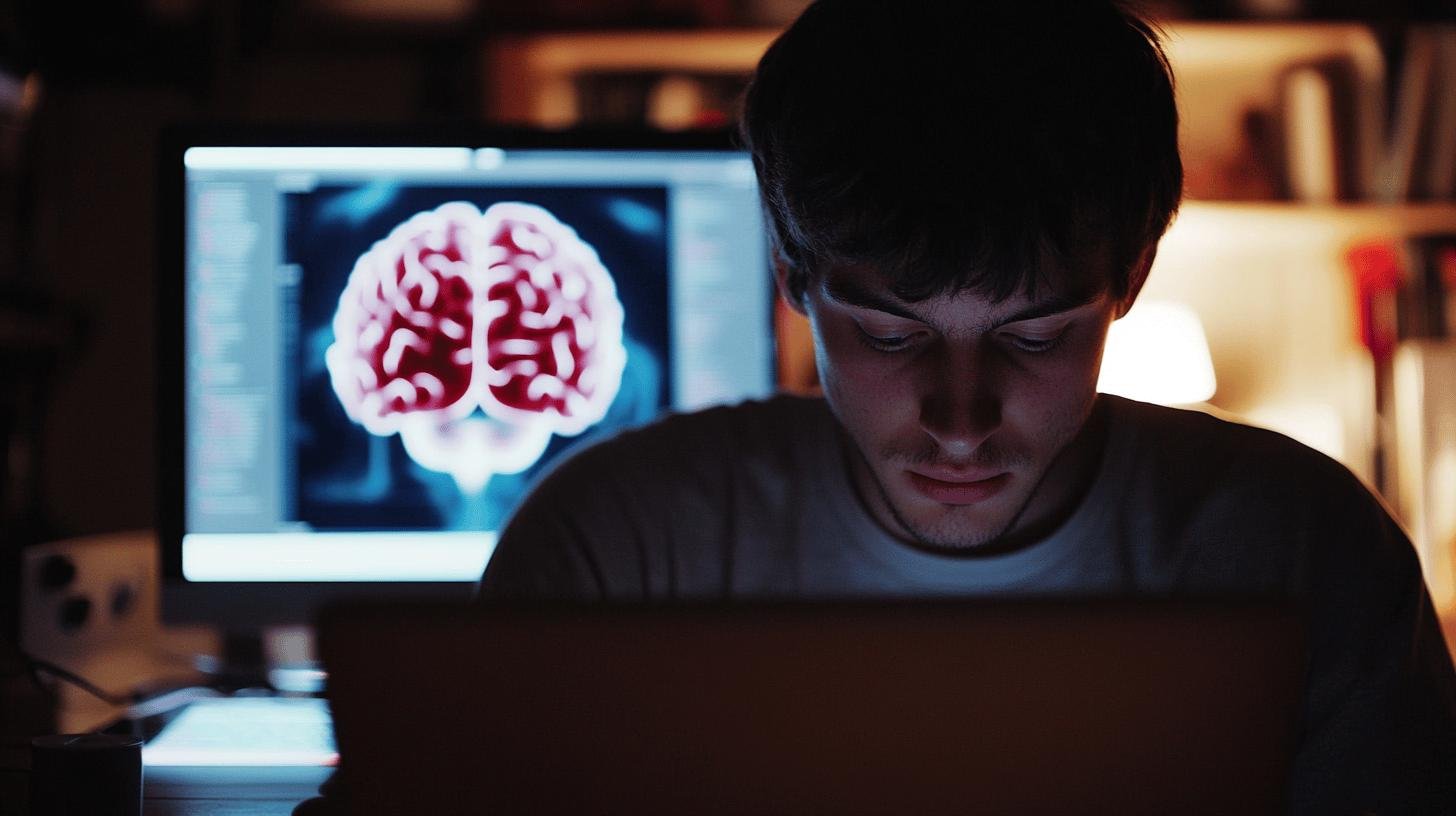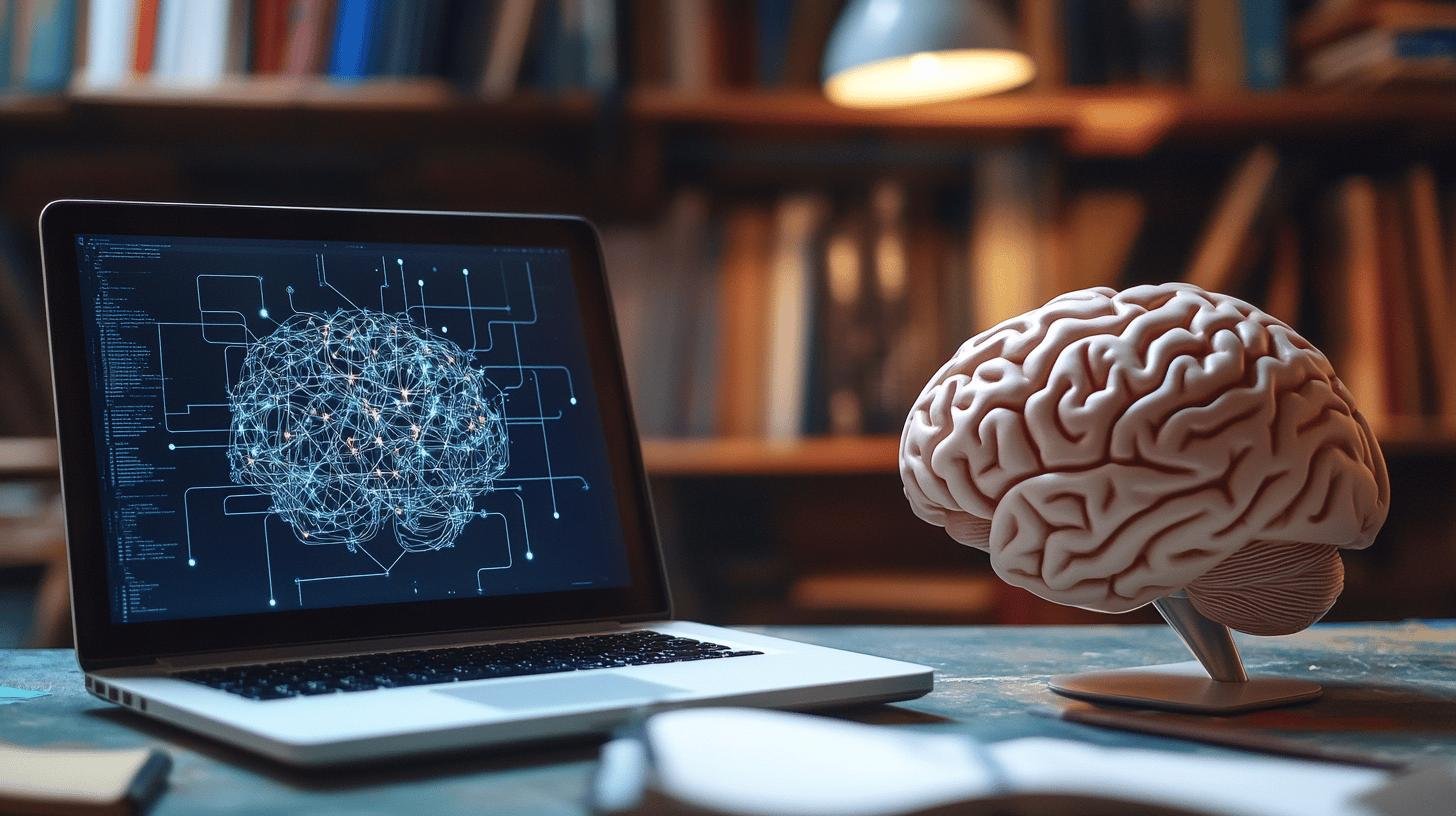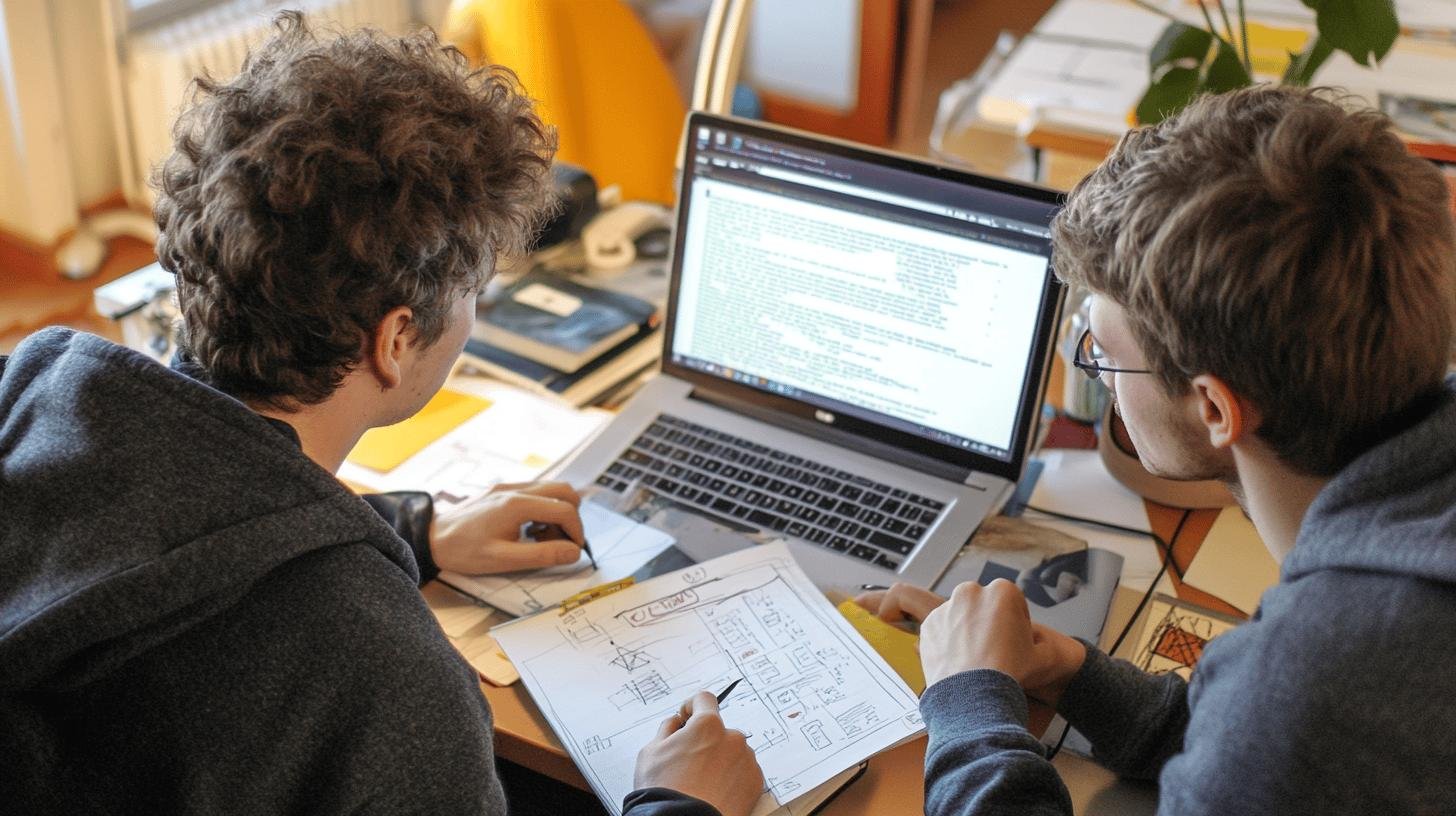Do you think computers would ever have feelings? In the great debate of human brain vs AI, each side brings some amazing strengths to the table. While your brain thrives on creativity and understands emotions like nobody’s business, AI can bolt through data and perform tasks with lightning speed and precision.
So, who’s the real cognitive champ here?
Let’s dig into the brainpower showdown between humans and machines and see where each shines and stumbles. Ready to geek out? Let’s go!
Cognitive Functions: Human Brain vs AI
The human brain excels in creativity, emotional intelligence, and complex decision-making. Imagine coming up with a story or a new idea—your brain can do that instantly. This is because our brains are skilled at thinking outside the box. When it comes to understanding feelings, humans are pros. We can pick up subtle cues like tone of voice or facial expressions, something AI can’t do yet. Also, when we face tough choices, our brains weigh many factors, including emotions, past experiences, and context. This makes human decision-making sophisticated.
On the flip side, AI is like a super-fast calculator. It excels in processing speed, data analysis, and repetitive tasks. If you give AI a massive dataset, it sifts through it in seconds, finding patterns and insights that might take humans forever. Repetitive tasks, like sorting emails or crunching numbers, are a breeze for AI because it doesn’t get tired or bored. However, don’t count on AI for deep understanding or empathy. While it’s great at handling vast amounts of information quickly, it struggles with tasks requiring emotional intelligence or nuanced understanding.
Efficiency and Energy Consumption

The human brain operates on just about 20 watts of power. That’s like running a dim light bulb! It’s super-efficient because it handles complex tasks, learns new things, and makes decisions without needing much energy. This efficiency results from millions of years of evolution, making our brains excellent at conserving energy while still getting a lot done.
AI systems, on the other hand, can be real energy hogs. They may require several kilowatts to function, especially when dealing with massive datasets or running complex algorithms. While they process information faster and handle repetitive tasks effortlessly, they consume much more power. This makes AI less energy-efficient compared to our brains, despite its speed and data-crunching abilities.
Learning Capabilities: Human Brain vs AI
Humans learn through experience, emotions, and social interactions. Think about learning to ride a bike—you probably fell a few times, felt frustrated, but eventually got the hang of it. This type of learning is unique because it involves physical practice, emotional responses, and feedback from others. Our brains are great at generalizing knowledge, meaning we can take what we learn in one situation and apply it to others. Plus, we adapt based on context. If something changes, like a new rule in a game, we quickly adjust and keep playing.
AI learns differently, relying on data input and algorithms. To teach a robot to recognize cats, for instance, you’d need to provide thousands of cat images to build its recognition ability. This process, called machine learning, is powered by neural networks, which mimic simplified versions of the human brain. Unlike humans, AI depends heavily on vast amounts of data to improve its accuracy and struggles to generalize knowledge. If shown an unfamiliar cat image, AI might have difficulty identifying it unless it has been trained with similar examples.
When it comes to comparison, the human brain vs AI, they have their strengths regarding efficiency and adaptability. Humans learn efficiently from a few experiences and adapt quickly to new situations. AI excels in processing large datasets and can improve its performance over time, but it requires a lot of data to get there. While AI can analyze patterns and perform repetitive tasks fast, it lacks the human ability to understand context and adapt on the fly.
Neural Networks and Synaptic Connections

The human brain is like a super-complex web, with about 86 billion neurons. Each neuron can form thousands of synaptic connections, acting like tiny switches that turn on or off based on received signals. This vast network allows for intricate and adaptive learning. Think about how you can learn multiple languages or adapt to new environments—your brain’s neural network makes this possible. It’s incredibly flexible and can rewire itself based on new experiences, which is why humans are so good at learning and adapting to new situations.
AI uses artificial neural networks. While powerful, they are much simpler than the human brain. AI neural networks consist of layers of nodes, which are like mini-neurons, but they lack the same complexity or adaptability. These networks mimic human learning but require a lot of data to excel at a task. For example, an AI might need thousands of cat images to recognize one accurately. Unlike humans, AI neural networks can’t easily generalize or adapt to new, unseen situations without extensive retraining.
Future Implications and Ethical Considerations
AI has the potential to elevate human capabilities. For instance, in healthcare, AI can analyze medical records faster than any doctor, leading to quicker diagnoses and personalized treatment. In education, AI can tailor learning experiences to individual students, making lessons more effective. Industries like manufacturing and logistics can benefit from AI’s ability to optimize processes and reduce waste. The future with AI looks promising, but it’s not all rainbows and unicorns.
Ethical concerns are significant when it comes to AI. One major issue is bias in training data. If the data used to train AI is biased, the decisions it makes will be biased too. This can lead to unfair treatment in areas like hiring or law enforcement. There’s also the need for transparency and accountability. People need to understand how AI systems make decisions and who is responsible when things go wrong. Without this, trust in AI could erode, making it harder to integrate into everyday life.
Human oversight is crucial for ethical integration of AI. Our brains excel at understanding context and nuance, something AI still struggles with. This makes human involvement essential in monitoring AI systems to ensure they’re working as intended. Moreover, while AI can automate complex tasks, it might also lead to job displacement. Humans need to guide AI’s ethical implementation to balance efficiency with fairness, ensuring that the technology benefits everyone.
Creative and Emotional Intelligence: Human Brain vs AI

AI learns differently, relying on data input and algorithms. To teach a robot to recognize cats, for instance, you’d need to provide thousands of cat images to build its recognition ability. This process, known as machine learning, is driven by neural networks that simulate simplified versions of the human brain. Unlike humans, AI depends heavily on vast amounts of data to improve its accuracy and struggles to generalize knowledge. If shown an unfamiliar cat image, AI might have difficulty identifying it unless it has been trained with similar examples.
AI, on the other hand, has some catching up to do. AI creativity depends on human prompts. It can generate art or compose music but needs a lot of guidance and data to do so. Think of AI like an advanced copy machine—it can combine and remix existing ideas but struggles to create something new without a nudge. Emotional intelligence in AI is also lacking. While AI can analyze data to understand what makes people tick, it can’t truly grasp the depth of human emotions. This makes it hard for AI to engage in nuanced social interactions or show empathy.
Final Words
We are at the peak of discovery! Human brain vs AI—what a comparison! On one side, we’ve got the human brain rocking creativity, emotional smarts, and complex decisions. On the flip side, AI shines with speed, data crunching, and repetitive tasks.
But let’s not forget, our brains are energy-efficient ninjas compared to AI power absorbers. Human learning is experience-based, whereas AI needs tons of data.
As we move forward, AI’s potential is massive, but ethical considerations are crucial. And at the end of the day, nothing beats human creativity and emotional depth. Cheers to the awesome blend of better brains—ours and AI!
FAQ
Is the human brain more powerful than AI?
The human brain excels in creativity, emotional intelligence, and complex decision-making. AI excels in processing speed, data analysis, and repetitive tasks but struggles with deep comprehension and emotional intelligence.
Will AI replace the human brain?
AI won’t replace the human brain but will complement it. While AI handles tasks like data analysis and repetitive work, humans shine in creativity, emotional intelligence, and complex decision-making.
Will AI ever outperform human brains?
AI may outperform human brains in specific tasks like processing speed and data analysis, but it lacks the nuanced understanding and emotional intelligence possessed by humans.
How is the human mind compared to artificial intelligence?
The human brain is highly adaptable and excels in understanding context and nuance. AI is great for processing large datasets quickly and performing repetitive tasks but struggles with emotional and deep comprehension.




